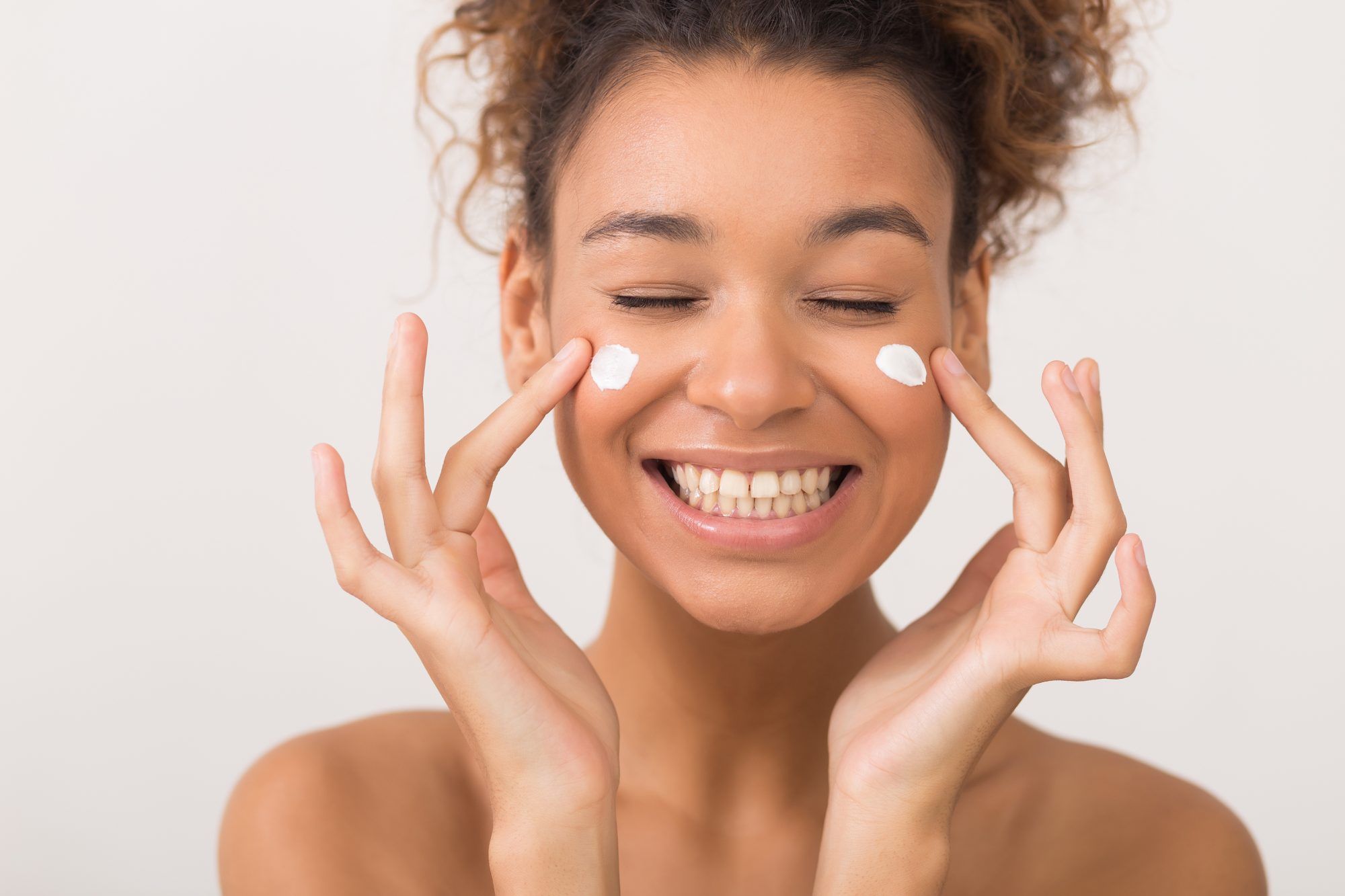
Is aging mostly genetic, or do we have control over our wrinkles?
It’s a question we’ve all wondered. If you’ve ever looked at your parents and wondered, “Am I going to look the same as them when I get older?” Surely, you’re not alone. After all, research suggests that your DNA does have an impact on your skin.
One study reveals that of more than 25,000 genes in our bodies, around 1,500 impacts the health and appearance of our skin. Research into skin genetics also finds there are around 8 major ways our skin ages and each function responds to our specific genes.
The reality is that everything from varicose veins to skin sagging and discolouration has a connection to our genes. That’s why some people start seeing wrinkles in their 20s; others don’t notice any problems until much later in life.
How Much of Skin Aging is Genetic?
Genetic theories around aging state that your lifespan and how you age is determined largely by the genes you inherit. The foundation of this belief is that segments of your DNA located at the end of chromosomes (known as telomeres). They determine the lifespan of a cell.
As you age, your telomeres become shorter as your cells divide.
Notably, the genetic theory of aging is just one assumption of how we age, built on what we know about DNA. Specialists also note that many other factors can influence aging, such as the gradual decrease of collagen in the body, exposure to various ailments, etc.
It’s difficult to know how the human body works for certain. However, we do know that skin does gradually deteriorate over time. The more we age, the more elastin we lose. Cells don’t replicate as quickly, and eventually, you start to notice some “wear and tear.”
So, if we believe that the elasticity and durability of skin is tied to our genetics – is there anything we can really do to slow the signs of ageing?
Yes, there is!
Understanding what kind of genetic predispositions you have in connection to ageing and taking steps to properly care for your skin is essential. Extrinsic factors like UV rays, pollutants, wind, and exposure to damage can all speed the ageing process.
What about skin is genetic?
Your genetic makeup has a direct impact on how slowly or quickly your skin starts to wrinkle and change. There are also some skin disorders that may be passed down through genetics. For instance, neurofibromatosis, ichthyosis, epidermolysis bullosa, and albinism are all influenced by genetics.
Crucially, however, you’re never guaranteed to get a disorder.
When you take a genetic test focusing on skin health, you can get a deeper insight into the kind of things you’re more likely to be exposed to. Understanding whether you’re genetically predisposed to things like inflammation, wrinkles, or discolouration could help you to make some positive early changes to your routine. The faster you work on your anti-ageing strategy, the better.

Our genetic skin report, for instance, will give you a personalised insight into the natural strengths and weaknesses of your skin. By examining things like your natural collagen levels, skin elasticity, and the presence of genetic mutations, we can get an idea of the sensitivities that you need to be aware of when you’re looking after your skin.
An insight into your skin genetics will also mean that you can create a care regimen more specifically tuned to the problems your skin might experience. For instance, if you know that you’re genetically predisposed to dry skin, then you can take steps to moisturise more often to keep wrinkles and other forms of damage at bay.
To get the most out of a genetic skin report, make sure you find out not just how predisposed you are to early ageing but if you have any sensitivities that may make your ageing process move a little faster. For instance, alcohol and caffeine sensitivity can both affect your ageing predispositions.
Read More: Top 3 Benefits of a DNA Test
What To Do To Combat Skin Ageing?
A combination of factors can cause skin disorders, such as environment, genetics, and other components. A family history of skin problems might increase your risk, but you can still take steps to protect yourself. You’re not destined to inherit wrinkles in your 20s. Around 40% of ageing factors are still non-genetic.
Here are some of the skincare regimens you can do to ensure you age gracefully:
- Try retinoids and antioxidants: Retinoids are great for inhibiting the breakdown of collagen if you’re prone to early ageing. At the same time, antioxidants are great for reducing collagen breakdown via oxidative stress. Antioxidants are available in vitamins, while retinoids often come in various anti-ageing creams.
- Get a treatment: AHA/BHA peels conducted by a dermatologist can support skin renewal and boost your youthful appearance. Glycolic acid in topical formulations like cleansers, gels, and creams are ideal for promoting collagen and elastin synthesis.
- Stay hydrated: It may be the most common advice for skin health, but it’s essential if you want to reduce ageing. Drinking plenty of water will keep your skin hydrated and reduce the loss of collagen. Hydration can also keep your skin looking plumper for longer, which reduces lines.
What lifestyle changes can help reduce wrinkles?
- Don’t smoke: There are plenty of reasons to avoid cigarettes if you can. Smoking causes significant damage to your skin over time, as toxic fumes seep into your pores and cause various kinds of damage, such as discolouration and congestion.
- Wear sunscreen: Protecting your skin from the sun is important too. Whenever you’re outside in the sun (whether you’re keen to tan or not), make sure that you wear the right sun protection. Sunscreen will help to defend you against skin damage and skin cancer.
- Eat the right foods: Your nutrition can influence your appearance in more ways than you’d think. Eating foods that are packed full of antioxidants and vitamins helps to reduce the free radicals responsible for wrinkles and discolouration.
See whether antioxidants play a role in physical trainings.
TL;DR – What’s The Key to Avoid Wrinkles?
The key to fighting back against skin genetics and maintaining younger-looking skin for longer is simply caring for yourself. If you know how to protect yourself from things like excess wrinkles and collagen loss, then you can reduce your chances of skin problems.

When Should Skincare for Anti-ageing Start?
You might be tempted to wait until you get a little older before you begin to think about things like skin genetics and wrinkles. If you’re in your twenties and you can’t see any lines yet, then you won’t be in any big rush to start exploring your options.
However, starting preventative skincare when you’re in your twenties could be an important step in maintaining those long-term youthful looks. Here are some tips on how to protect your skin throughout each decade of your life:
Anti-ageing Skincare for For Young Adults:
- In your 20s: In your 20s, most of the work you do to protect your skin will be preventative. You’ll be wearing moisturisers to stop your skin from drying out and consuming as many antioxidants as possible in the form of fresh fruits and vegetables. Look into getting an SPF cream you can regularly wear whenever you go outside. There are even options on the market which combine UV protection with antioxidants too! Stick to lightweight creams whenever you can to avoid greasy skin.
- In your 30s: You may notice some signs of ageing around your eyes in your 30s. Start looking for eye creams that add moisture and volume to the skin. There are plenty of products out there with things like hydrating glycerine and peptides, which assist with collagen management. You should also be accelerating cell turnover by regularly exfoliating your skin with a gentle scrub.
Anti-ageing Skincare for For Mature Adults:
- In your 40s: Make sure you’re protecting your skin as much as possible during this time of your life. You may notice that more lines are appearing around your brows, eyes, and forehead. Fight against discolouration and lines with dermatological treatments and repairing creams to address lost moisture.
- In your 50s: Your skin support structure begins to dwindle during your fifties. You lose collagen and elastin, which keeps your face looking plump. Moreover, you might notice more sagging skin during this time. So find plenty of creams that include collagen, elastin, and other restorative hydration substances. Antioxidants will be crucial in your fifties, too, so you can fight against all kinds of free radicals.
- In your 60s: The secret to managing a great skin texture is to moisturise as much as you can. Cellular turnover will be slowing at this point. So it’s a good idea to invest in creams. Find ones that would support renewal and reduce problems with uneven tone, dullness, and roughness too.

There are various parts of your skin ageing process which link back to your genetics. Fortunately, you don’t have to worry too much about following in your parents’ footsteps. You can still save your skin and reduce wrinkles too!
Want to find out more? Head over to CircleDNA to get more insight on your genes!






